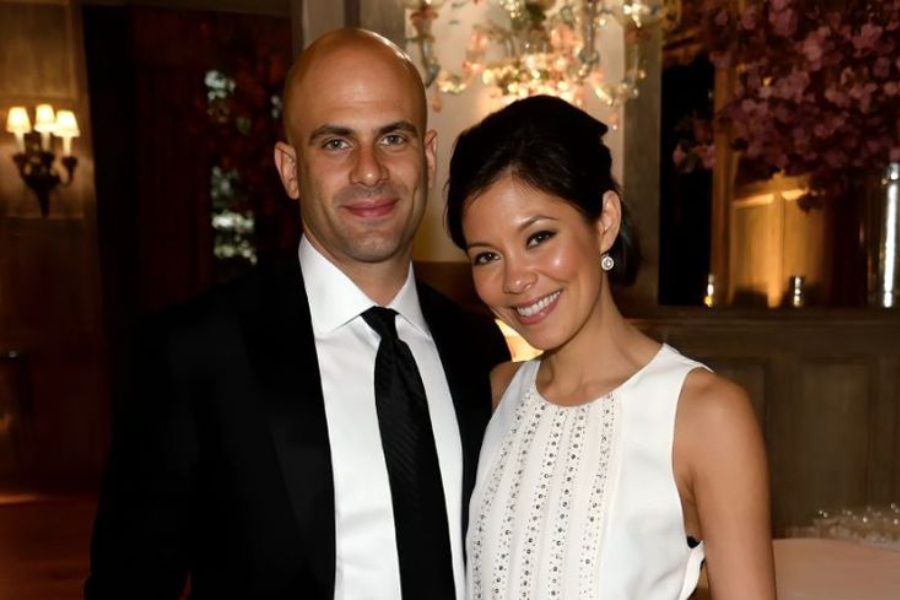
Tin Swe Thant
Introduction: A Journey of Strength and Transformation
The story of Tin Swe Thant is one of remarkable perseverance, cultural adaptation, and personal growth. Originally from Myanmar, she moved to the United States seeking education and a brighter future. Her journey has since become emblematic of the immigrant experience, shaping not only her life but also the worldview of her daughter, renowned American journalist Alex Wagner. This article delves into Tin Swe Thant’s life, tracing her origins, migration, cultural adjustments, and the lasting impact she has had on both her family and the wider society.
Early Life in Myanmar: The Roots of Her Identity
Tin Swe Thant was born in Yangon, Myanmar, a city that was formerly known as Rangoon, at a time when the country was undergoing significant social and political changes. Myanmar had recently gained independence from British colonial rule, which had left a profound mark on its educational system, culture, and societal norms. The nation was in the process of defining its identity, grappling with the balance between preserving its traditions and embracing a future as an independent state.
Raised in a family that valued education, Tin Swe Thant attended schools where English was the primary language of instruction. In the context of Myanmar’s post-colonial society, it was not uncommon for students from more affluent families to adopt Western names, influenced by the legacy of British colonialism. For Tin Swe Thant, her family chose the name “Maureen,” inspired by the famous Irish-American actress Maureen O’Hara. While she was known by this name in school, it symbolized the blend of Western identity that had permeated Myanmar, often overshadowing traditional Burmese customs.
Growing up, Tin Swe Thant experienced a sense of duality, torn between the rich cultural heritage of her Burmese roots and the Western ideals promoted by her education and the broader social environment. This dual identity would go on to shape her perspective and influence her path in life.
Wiki
| Attribute | Details |
| Full Name | Tin Swe Thant |
| Born | Yangon, Myanmar (formerly Rangoon) |
| Nationality | Burmese-American |
| Spouse | Carl Wagner (political consultant) |
| Children | Alex Wagner (journalist and TV host) |
| Education | Swarthmore College, Pennsylvania, USA |
| Profession | Political Scientist, Activist, Immigrant Advocate |
| Notable Contributions | Advocated for social justice, equality, and human rights. Shaped daughter Alex Wagner’s worldview. |
| Legacy | Her impact continues through her daughter, who is a prominent journalist and activist. |
| Cultural Background | Burmese heritage with a mix of American cultural influence. |
| Key Themes | Immigration, cultural integration, social justice, identity, family values |
Educational Pursuits and Relocation to the United States
In the 1960s, Tin Swe Thant made the pivotal decision to leave Myanmar and continue her education in the United States. Myanmar was going through political turmoil, and opportunities for higher education were scarce. Like many young people from developing nations, Tin Swe Thant sought better educational prospects and greater opportunities abroad.
She enrolled at Swarthmore College, a distinguished liberal arts institution in Pennsylvania. It was here that she not only pursued her academic interests in political science but also immersed herself in the evolving social landscape of America. Coming from Myanmar, she encountered new ways of thinking, living, and interacting with people, which had a profound impact on her self-perception and understanding of the world.
During her time in the United States, Tin Swe Thant decided to reclaim her birth name, abandoning the Westernized “Maureen” in favor of a name that more closely reflected her heritage. This change was part of her growing desire to reconnect with her Burmese identity. At Swarthmore, she also developed a deeper understanding of global politics, including the challenges faced by Myanmar under a military dictatorship.
Navigating American Culture: Blending Traditions with New Ideals
After completing her studies at Swarthmore, Tin Swe Thant settled in the United States, continuing to adjust to the culture and way of life. The 1970s saw significant cultural shifts, including the rise of the counterculture movement. Like many of her peers, Tin Swe Thant embraced the era’s fashion, donning bell-bottom pants and long, flowing hairstyles. She also began to explore Marxist thought, reflecting the political trends that were influencing many young Americans during that time.
Her transition into American society was more than just about adopting the latest styles; it was about finding a sense of belonging in a country that was vastly different from the one she had known. As an immigrant, especially one from a racially marginalized background, Tin Swe Thant had to navigate the complexities of her identity within the broader social fabric of her new home. For her, this meant reconciling the ideals of her new American environment with her deep ties to her Burmese roots.
By the 1980s, Tin Swe Thant had once again evolved in response to shifting cultural dynamics. She embraced the professional aesthetic of power suits and became involved in the emerging fitness culture, taking up jogging as part of the growing emphasis on personal health. Through each stage of her life, Tin Swe Thant demonstrated an impressive ability to adapt to the ever-changing cultural and professional landscapes around her.
Cultural Blending in Family and Marriage
In the late 1970s, Tin Swe Thant and Carl Wagner, a political consultant with Irish and Luxembourger roots, united in marriage. Their relationship exemplified a beautiful fusion of cultures, with Tin Swe Thant, a Burmese immigrant, and Carl Wagner, an American native, merging their diverse backgrounds into a shared life. This union created a unique family dynamic, where cultural differences were celebrated and intertwined.
Their daughter, Alex Wagner, was born in 1977. As the offspring of a Burmese mother and an American father, Alex was exposed to a rich blend of Burmese traditions and American values. The lessons Tin Swe Thant imparted to Alex went beyond academics, teaching her the strength of resilience, the importance of preserving one’s identity, and the significance of honoring one’s heritage.
Tin Swe Thant’s impact on Alex’s upbringing was profound. While embracing American society, she was also deeply committed to ensuring Alex remained connected to their Burmese roots. Alex grew up with a multifaceted worldview—one shaped by her mother’s immigrant journey and enriched by the American ideals she was raised with.
Alex Wagner’s Career and Identity Shaped by Her Mother
Alex Wagner, a renowned journalist and TV host, has frequently shared how instrumental her mother’s influence has been in shaping her life and career. Raised in a multicultural household, Alex learned to navigate the complexities of identity, culture, and belonging. The experiences her mother endured—marked by both challenges and triumphs—served as a foundational element of Alex’s understanding of the world.
In her career, Alex has tackled subjects such as race, immigration, and cultural identity, issues that resonate deeply with her personal journey. Much of her advocacy and insight can be traced back to her mother, Tin Swe Thant. Alex’s deep empathy for marginalized communities and her commitment to social justice stem from the lessons she learned from Tin Swe Thant’s life and experiences.
Tin Swe Thant’s story as an immigrant and her commitment to preserving her cultural identity while embracing her new American life significantly influenced Alex’s views on social issues. Alex has consistently drawn on her mother’s wisdom, whether advocating for immigrant communities or aligning herself with movements like Black Lives Matter, where she has been an outspoken advocate for racial justice.
Tin Swe Thant’s Continued Impact and Activism
The influence of Tin Swe Thant extended far beyond raising a daughter who became a public figure. Over the years, she has remained actively engaged in her community. Her participation in social and political causes, such as her support for Black Lives Matter, reflects her deep commitment to giving back to the society that welcomed her.
Her involvement in activism highlights the full-circle nature of her journey—from an immigrant seeking to find her place in America to someone who now works to improve the country that offered her opportunities. By embracing the values of equality, justice, and human rights, Tin Swe Thant continues to contribute to the social fabric of her community.
Her path—from a young girl in Myanmar to an active and engaged mother and advocate—demonstrates how deeply interconnected culture, identity, and social issues can be. Tin Swe Thant’s story encourages us to reflect on the broader immigrant experience, the complexities of assimilation, and the ways in which individuals can honor their heritage while enriching their new societies.
The Lasting Legacy of Tin Swe Thant
The legacy of Tin Swe Thant remains indelible, both in the lives of her family and within the larger community. Her journey proves that the immigrant experience is not defined by isolation or loss of identity but rather by cultural integration and adaptation. Through her life, we see that it’s possible—and deeply enriching—to preserve one’s heritage while embracing the opportunities presented by a new homeland.
Her legacy continues through the work and activism of her daughter, Alex Wagner, and her ongoing commitment to social justice. As someone who navigated the complexities of cultural identity in the United States, Tin Swe Thant has shown the world that it’s possible to honor one’s past while forging ahead with purpose and determination.
Key Facts about Tin Swe Thant:
- Immigrant Journey:
Tin Swe Thant moved from Myanmar to the United States in the 1960s in search of better educational opportunities and a brighter future. She left behind a country experiencing political instability.
- Cultural Integration:
As a Burmese immigrant, Tin Swe Thant managed to maintain her cultural identity while adapting to American society. She passed on her Burmese heritage and values to her daughter, Alex Wagner, balancing both cultures in their household.
- Influence on Daughter:
Tin Swe Thant played a significant role in shaping her daughter, Alex Wagner’s, understanding of identity, culture, and social issues. Alex, now a renowned journalist, has often cited her mother’s influence on her career and her advocacy for social justice.
- Political Science Education:
Tin Swe Thant pursued higher education in political science at Swarthmore College in Pennsylvania, which played a key role in shaping her views on global politics and social issues, particularly those impacting Myanmar.
- Ongoing Activism:
Even after settling in the U.S., Tin Swe Thant remained actively engaged in social and political activism, focusing on racial justice and immigrant rights, showing that her influence extended beyond her family to wider societal causes.
Final Thoughts: Tin Swe Thant’s Enduring Influence
Tin Swe Thant’s life story serves as an inspiring example of resilience, cultural assimilation, and the transformative power of education. Her decision to leave Myanmar in search of better opportunities led her to the American Dream, but she never let go of the cultural roots that grounded her. The values she instilled in her family, especially in her daughter, Alex Wagner, reflect the complexities of the immigrant experience and the importance of understanding one’s identity.
Through Tin Swe Thant’s journey, we learn how one individual’s perseverance can create ripples that affect future generations and society at large. Her legacy reminds us to honor our heritage, embrace new opportunities, and continue fighting for justice and equality.
Frequently Asked Questions
- Who is Tin Swe Thant?
Tin Swe Thant is a woman originally from Myanmar who moved to the U.S. in the 1960s. She is widely recognized as the mother of Alex Wagner, a well-known American journalist, who has frequently highlighted the significant role her mother played in shaping her views and career. - What role did Tin Swe Thant play in shaping Alex Wagner’s perspective?
Tin Swe Thant had a profound impact on Alex Wagner’s development, particularly in shaping her views on culture, identity, and social justice. Growing up with an immigrant mother, Alex was exposed to a unique blend of Burmese traditions and American values, which influenced her approach to issues like race, human rights, and immigration throughout her career. - Why did Tin Swe Thant move to the U.S.?
Tin Swe Thant relocated to the United States to further her education, particularly in political science, and to explore better opportunities. The political unrest in Myanmar at the time also contributed to her decision to emigrate, seeking stability and growth abroad. - How did Tin Swe Thant preserve her Burmese roots while adapting to American life?
While integrating into American society, Tin Swe Thant took active steps to keep her Burmese heritage alive. She passed on important cultural values to her daughter, ensuring that they maintained a strong connection to their Burmese roots even as they adapted to their new life in the U.S. - What lasting impact did Tin Swe Thant have?
The impact of Tin Swe Thant is evident in the life and career of her daughter, Alex Wagner, who has become a significant figure in American journalism. Beyond her family, Tin Swe Thant’s commitment to social justice continues to resonate, illustrating the lasting effect of her journey on the broader conversations around culture, immigration, and social equity. - In what ways did Tin Swe Thant engage with her community?
Tin Swe Thant was deeply involved in activism, particularly in areas related to racial justice and equality. Her active participation in these causes underscores her lasting influence, not only within her family but also in contributing to societal change through her ongoing dedication to important social issues.
Discover the latest news and updates on The Blog Verge






